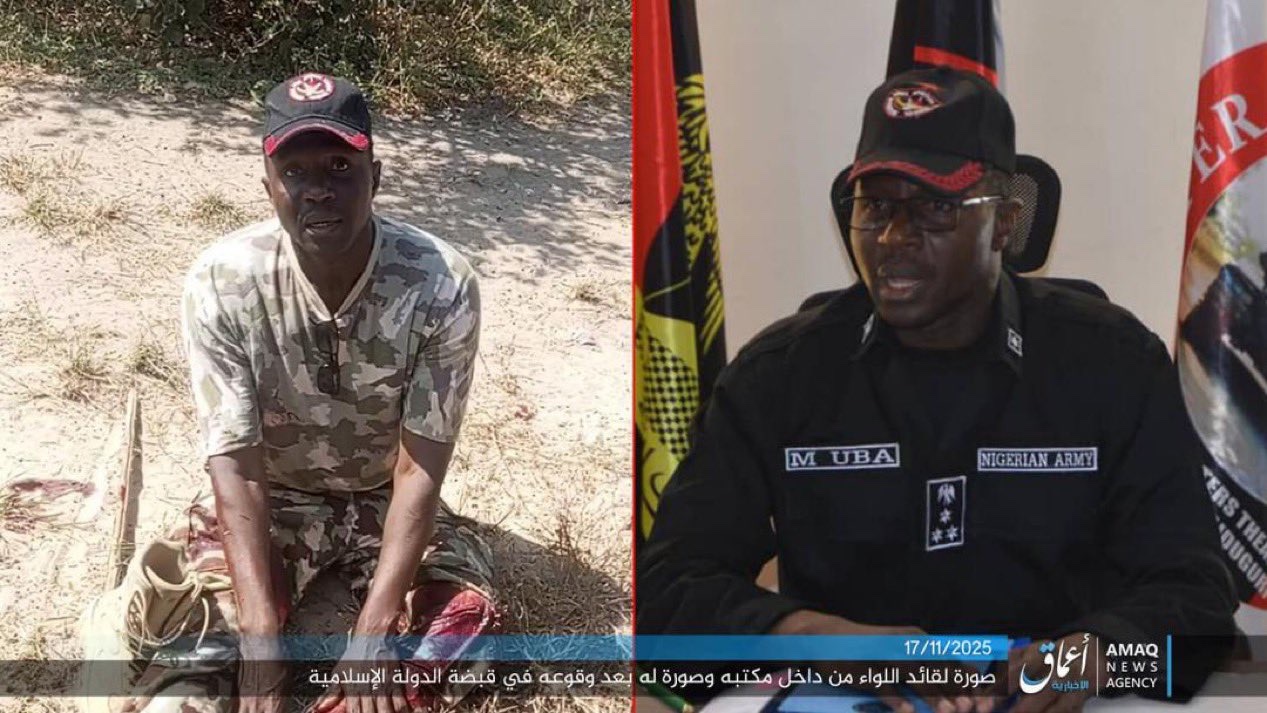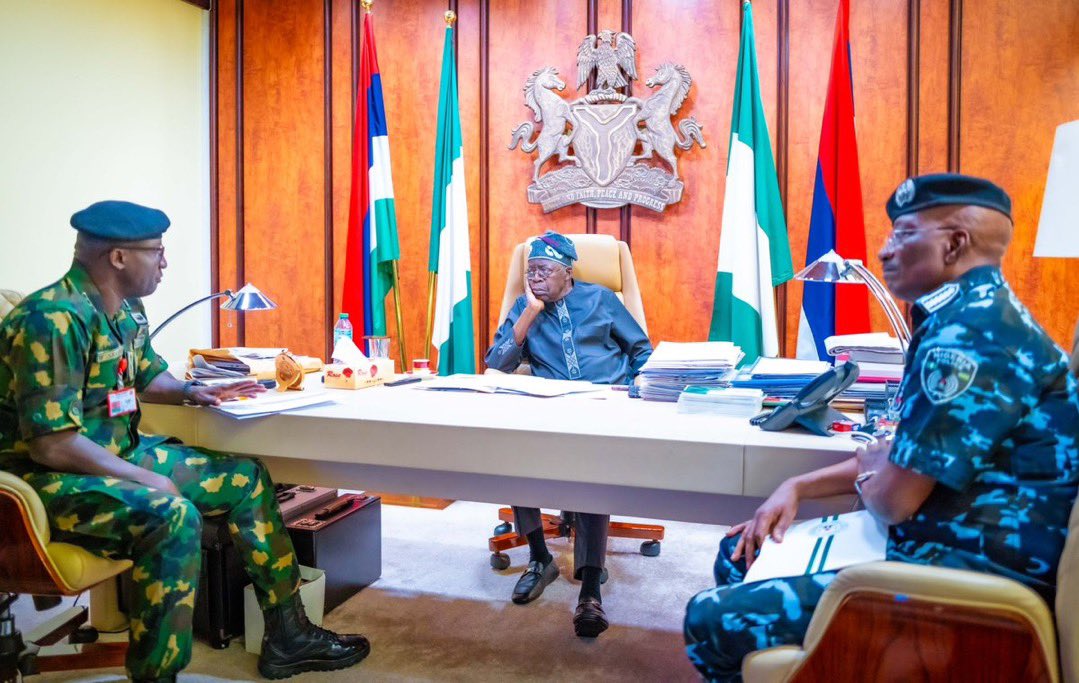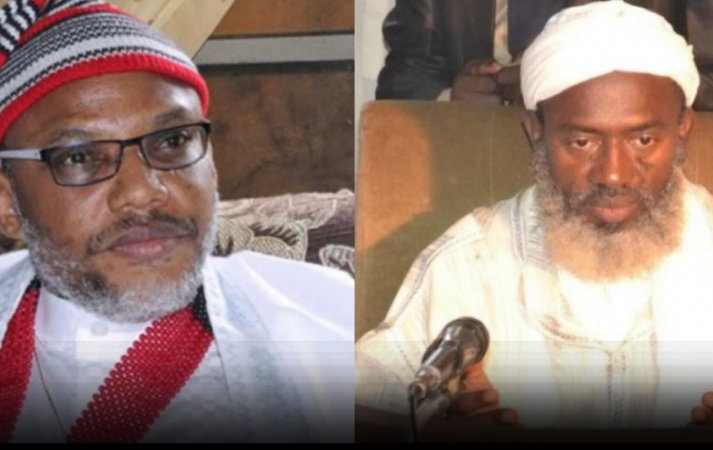

Nigeria has been thrown into deep mourning following a devastating ambush in Borno State that led to the capture and reported execution of Brigadier General Muhammed Uba by fighters of the Islamic State West Africa Province (ISWAP). The heartbreaking development, which has spread shockwaves across military circles and the nation at large, marks one of the most tragic losses for the Nigerian Army in recent years and once again highlights the unforgiving realities of the country’s long-running battle against insurgency. As details continue to unfold, emotions are raw, flags are lowered, and questions are rising about how such a high-ranking officer fell into the hands of the extremist faction.
According to early reports from military insiders and local security observers, the incident occurred during a routine patrol and clearance operation in one of the volatile corridors near the Lake Chad axis, a notorious stronghold where ISWAP fighters often emerge from hidden enclaves to launch surprise attacks. Brigadier General Muhammed Uba, a respected commander known for his strategic clarity and hands-on leadership style, was reportedly leading his men when the convoy came under heavy fire. What began as an exchange quickly escalated into a deadly ambush, with insurgents taking control of the terrain and forcing the troops into a grueling fight for survival. Despite reinforcements being dispatched, the terrorists overpowered the unit, resulting in the General being seized by the attackers.
What followed has sent tremors across the country: ISWAP’s media wing circulated images and unverified footage claiming the execution of the Brigadier General. Although the military high command has yet to officially confirm the footage, multiple credible sources indicate that the insurgents indeed carried out the horrific act shortly after capturing him. The chilling announcement immediately provoked outrage, sorrow, and fear as Nigerians grappled with the implications of such a bold and brutal move. The execution of a senior officer of his rank is not only a grievous loss but a symbolic strike aimed at undermining the morale of the nation’s security forces.
Across social media platforms, grief has poured in like a storm. Soldiers, veterans, political figures, and everyday citizens have expressed their heartbreak over the loss of a man many described as courageous, determined, and deeply committed to restoring peace in the Northeast. Heart-wrenching tributes highlight how Brigadier General Uba was known for being at the frontline with his troops, refusing to lead from behind or make decisions detached from the realities on the ground. His death is being regarded not just as a military tragedy but as a national wound.
Within the Army, the atmosphere is said to be tense and heavy. Officers who served under him have spoken, some anonymously, about the emotional toll his loss has taken. Many describe him as a mentor whose tactical brilliance and humanity set him apart. His colleagues recall his dedication even in the face of multiple life-threatening missions, and how he often insisted that the fight against insurgency must never lose its focus: protecting Nigerians, especially vulnerable communities long trapped in cycles of terror. His passing leaves a painful void in an institution already stretched thin by years of conflict.
This incident has also triggered renewed conversation about the sophistication and operational audacity of ISWAP. Over the past three years, the group has intensified its attacks, enhancing its weaponry, logistics, and intelligence networks. By targeting a Brigadier General, ISWAP appears to be making a calculated statement about its growing confidence and capability. Security analysts warn that this boldness signals a dangerous trajectory, one that demands an urgent reassessment of Nigeria’s counter-terrorism strategies. Experts insist that a multi-layered approach involving better intelligence coordination, renewed political commitment, improved troop welfare, and deeper collaboration with regional forces is now more critical than ever.
For residents of Borno and surrounding states, the ambush has reignited fears of escalating insurgent activity. Many communities already living under the constant shadow of terror now worry that the morale of the troops protecting them could be further strained. Parents, traders, farmers, and displaced persons in camps have begun voicing their anxieties, expressing concern that the insurgents may interpret this incident as a motivation to carry out even more daring attacks. Local leaders, meanwhile, are urging the federal government not only to avenge the fallen General but to use his death as a turning point in the fight for peace.
In Abuja, responses from officials have so far been measured, pending a formal statement from Defence Headquarters. However, insiders reveal that high-level emergency meetings have been convened to review the circumstances surrounding the ambush. There are strong indications that a full investigation will be launched, not only to determine what went wrong tactically but also to identify whether intelligence failures played a role. Questions are swirling: Was the convoy’s movement compromised? Did the insurgents receive advance information? Were there gaps in communication or support? These are issues the military leadership will now be under immense pressure to address with clarity and honesty.
As Nigerians grieve, the story of Brigadier General Muhammed Uba becomes more than just another casualty report. It becomes a reminder of the price paid daily by thousands of soldiers who put their lives on the line to keep the country standing. It forces a national reckoning with the realities of the war against terror—a war in which victories are often unsung, and losses like this one cut deep into the nation’s soul. His death will likely reignite calls for better equipment, advanced training, and more robust mental health support for troops who have spent years fighting a war that seems to shift shape with every season.
International observers and allies are also expected to respond as the news gains global attention. Nigeria’s fight against insurgency has long been a matter of regional and international concern, with many countries providing technical support, training, and intelligence assistance. The execution of such a senior officer underscores the urgent need for stronger global cooperation in dismantling terror networks in West Africa before they evolve into threats far beyond the region.
Tonight, Nigeria mourns a hero whose life was defined by service, courage, and sacrifice. The image of a Brigadier General falling into the hands of terrorists and paying the ultimate price will linger painfully in the hearts of millions. Yet in this moment of sorrow, many Nigerians are vowing that his death must not be in vain. Calls are growing louder for unity, resilience, and determined action to ensure that the tides of terror do not drown the hope of a safer nation.
Brigadier General Muhammed Uba’s legacy will be remembered not for the manner of his death, but for the depth of his dedication. And as the nation stands still in grief, one truth remains unshaken: Nigeria cannot afford to retreat. The fight continues, even in tears.


